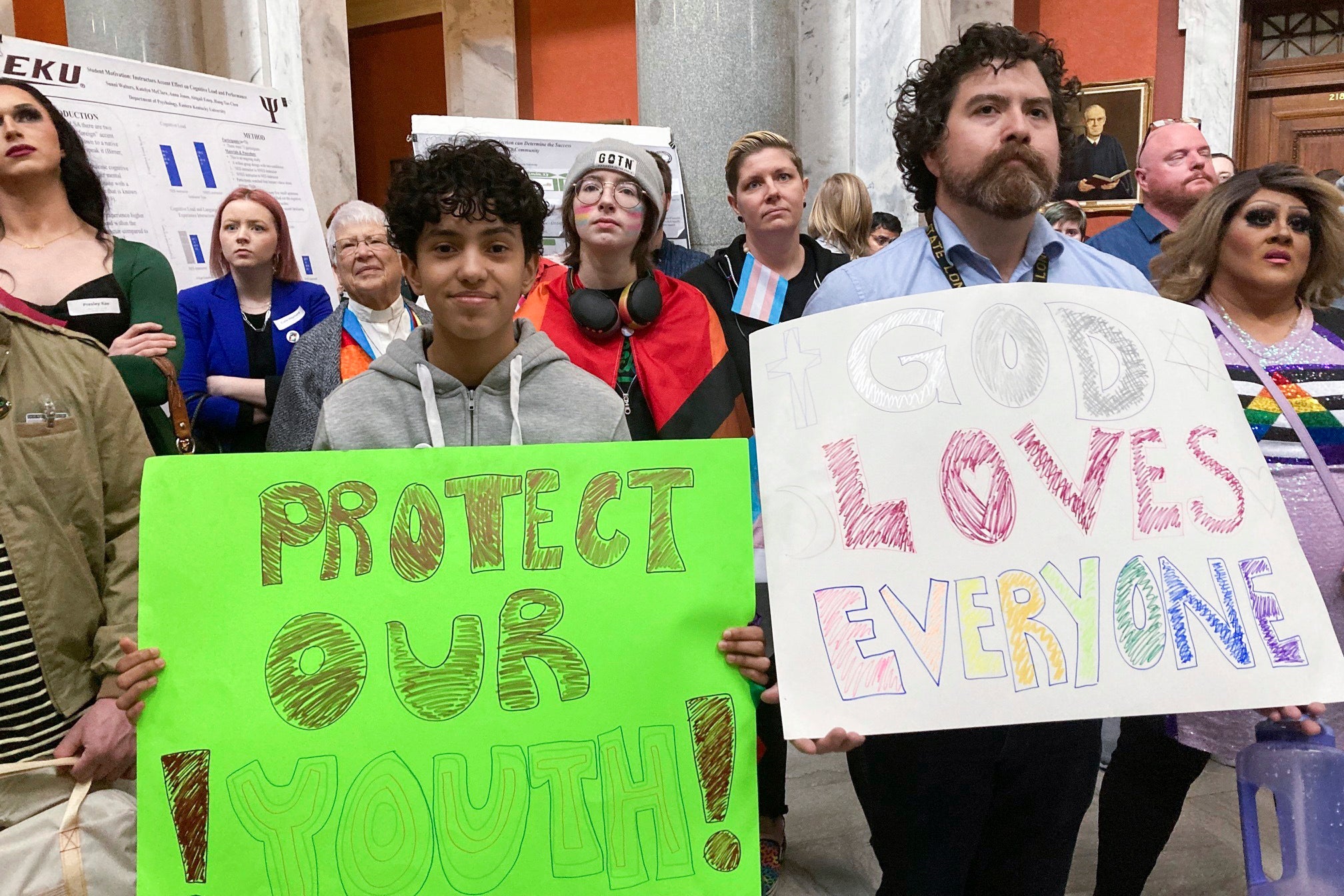Supreme Court upholds states’ block on protections for trans students
Next Supreme Court term will confront challenges to anti-transgender laws

Your support helps us to tell the story
From reproductive rights to climate change to Big Tech, The Independent is on the ground when the story is developing. Whether it's investigating the financials of Elon Musk's pro-Trump PAC or producing our latest documentary, 'The A Word', which shines a light on the American women fighting for reproductive rights, we know how important it is to parse out the facts from the messaging.
At such a critical moment in US history, we need reporters on the ground. Your donation allows us to keep sending journalists to speak to both sides of the story.
The Independent is trusted by Americans across the entire political spectrum. And unlike many other quality news outlets, we choose not to lock Americans out of our reporting and analysis with paywalls. We believe quality journalism should be available to everyone, paid for by those who can afford it.
Your support makes all the difference.Twenty-six states will be permitted to maintain their block on the Biden administration’s new rules intended to protect transgender students from discrimination, the Supreme Court ruled on Friday.
In an emergency order, all nine justices upheld a ruling by lower courts in Louisiana and Kentucky that allowed the states to temporarily pause the new rules as legal proceedings on the matter continue.
The new rules, which were unveiled by the Biden administration in 2021, redefined “sex discrimination” in Title IX to include “sex stereotypes, sex characteristics, pregnancy or related conditions, sexual orientation, and gender identity.”

It is an extension of the landmark civil rights law that has banned discrimination in schools on the basis of sex for more than 50 years.
Justices said the states were entitled to temporary injunctive relief while litigation determines if the central provision of the new rules, re-defining sex discrimination, is constitutional.
“The new definition of sex discrimination is intertwined with and affects many other provisions of the new rule,” justices said, adding that it would be difficult for schools to implement the new rules by August 1.
In typical fashion, the per curiam order was unsigned. But Justices Sonia Sotomayor, Elena Kagan, Neil Gorsuch and Ketnaji Brown Jackson issued a dissent in part saying they would allow some parts of the new rules to go into effect.
The ruling is yet another blow to the Biden administration’s attempt to enact rules that protect transgender students from state laws that force them to use bathrooms or locker rooms, wear a uniform or play on sports teams consistent with their sex at birth.
Friday’s order is not the final ruling in the challenges.
The Supreme Court will likely return to the issue in the next term. Already, the court is looking at the constitutionality of a Tennesse law that bans gender-affirming medical treatment for minors.
Join our commenting forum
Join thought-provoking conversations, follow other Independent readers and see their replies
Comments